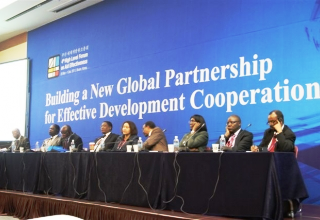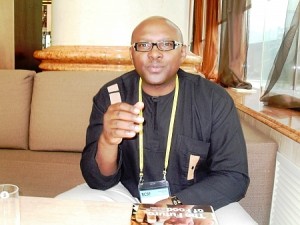The results agenda: Push back at Busan?
Towards the end of 2011 three thousand people travelled to Busan, salve South Korea, cialis to discuss the future of international development assistance. All eyes were on that group of donors, who are themselves still aid recipients – such as India, Brazil, Indonesia and China – who were seen to be challenging the paradigm in which the ‘West/North’ determined what was development and how it should take place. However, the ‘BRICs’ them was not the only show in town. Various coalitions of donors/recipients/civil society were pushing their favourite themes. In a joint statement released before Busan, the ‘blue club’ of bilateral donors (Britain, Canada, Denmark, Germany, Netherlands, Sweden, and the United States) issued a joint statement in which ‘a drive for better development results’ headed the list of their priorities. 
They successfully established a post-Busan ‘ coalition of the willing’ to pursue a ‘results and accountability’ agenda but their persistent emphasis on results (and everything it entails in tyrannical practice, if not in rhetoric) irritated some conference participants and some spoke out about it. It was implicitly criticised by Rwanda’s President Kagame in his speech at Busan when he said,
“Developing countries spend more time and energy agreeing on procedures and accounting to donors and an ever-increasing number of related non-state actors than in actual development work, often responding to endless questioning that no answers can fully satisfy.”
Richard Ssewakiryanga, the Chair of Uganda’s NGO Forum was more explicit and trenchant in his blog about Busan an extract from which he has given BPF permission to reproduce here.
The word that kept lingering in my mind after all 100 side events, knowledge and information events and plenary sessions is “results.” Every speaker both at the opening and closing ceremonies and in the two thematic sessions and one plenary focusing on results spoke about the importance of showing results – to tax payers, to voters, to poor people and donors as well as partner governments and parliaments in both the north and south. But three issues stand out around the concept and idea of results that we may need to pay more attention to
First is for every development actor to understand that results are about people. When we think about a result we should think about the beneficiaries who are impacted by aid and other development cooperation resources. Results should be the children who do not die of curable diseases and conditions like malaria, diarrheal and even malnutrition. Results should be children enrolled in schools and learning. Results should be about no mother dying while giving birth and ensuring that all development investments lead to people living dignified lives. This is what real results should be about. But sometimes our high-level forum speakers collapsed into discussion of better public finance management systems, results-based financing, cash-for-delivery schemes, and public sector results management as ends in and of themselves.
Second is whole issue of process, and results was one that was glossed over quite a bit. Sometimes it looked like we were more engrossed with the idea of achieving good results without thinking about processes. When the private sector participants spoke of the impressive jaw-dropping numbers of how they had turned little money from donors into millions of dollars, the discussion did not question the processes used in achieving these results. If indeed results are about people, then processes are important so that we do not only look at results as if they are produced without any impact on people’s lives.
We were, for example, reminded by a trade union activist from Korea during the Busan Civil Society Forum that was held before the high-level forum, how a prominent company from Korea was working with the Philippine government to build a large shipyard. But as this took place, the workers at the shipyard worked very long hours, fell off very high cranes and died, and the workers at the shipyards could not even speak freely to the trade unionist who was visiting from Korea. As the trade unionist put it very graphically, we should not be creating graveyards while building shipyards.
The third dimension that still stood out for me was risk. As we produce results, clearly there are certain risks that are involved. What we did not focus on is what kinds of mechanisms we should be putting in place to ensure that as we achieve results we do not let only one development actor take responsibility for the risks.
Comments are closed.

Richard Ssewakiryanga’s comments are very apt. Results agendas vey often go off the rails in not useful directions. The more they are pushed, advertised and implemented as measurement and accountability tools, the more this will happen.
What is needed, I would suggest, is to reform the results agenda as a learning agenda first and foremost, rather than a measurement scheme. Learning by donors, implementors and beneficiaries. A “learning what works agenda” would look quite different from most current results agendas. Learning what works will need measurement, but as a follow-on activity, not a driving force. Learning what works will need learning strategies to be developed and implemented, participatory agendas and a willingness to explore and embrace errors.
Useful accountability would also be a fall-out. Donors and implementors ought to first and foremost accountable for learning; be able to show that they are learning from there experiences and improving the design and delivery of development initiatives. Then I would be comfortable that my tax money is being well spent.